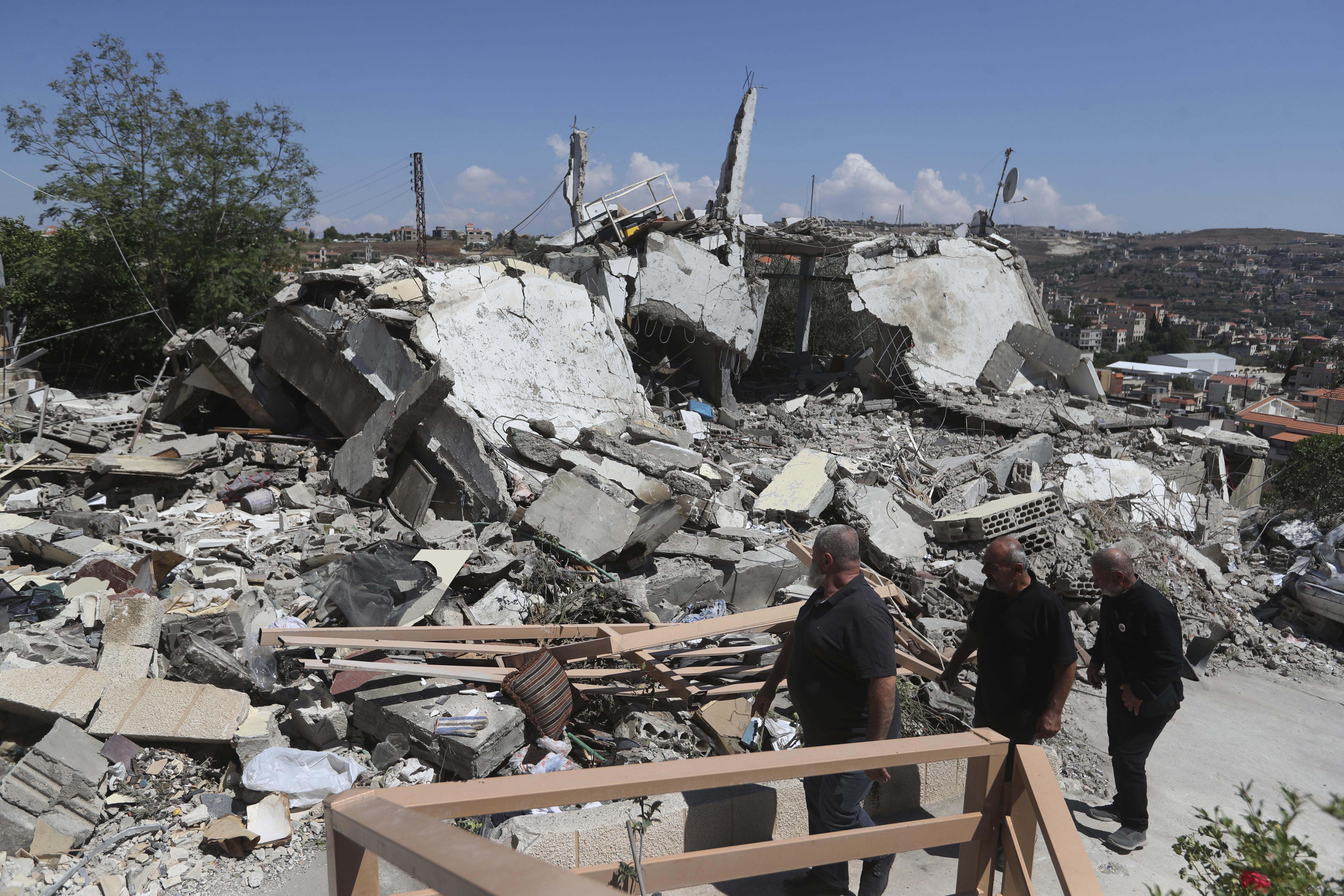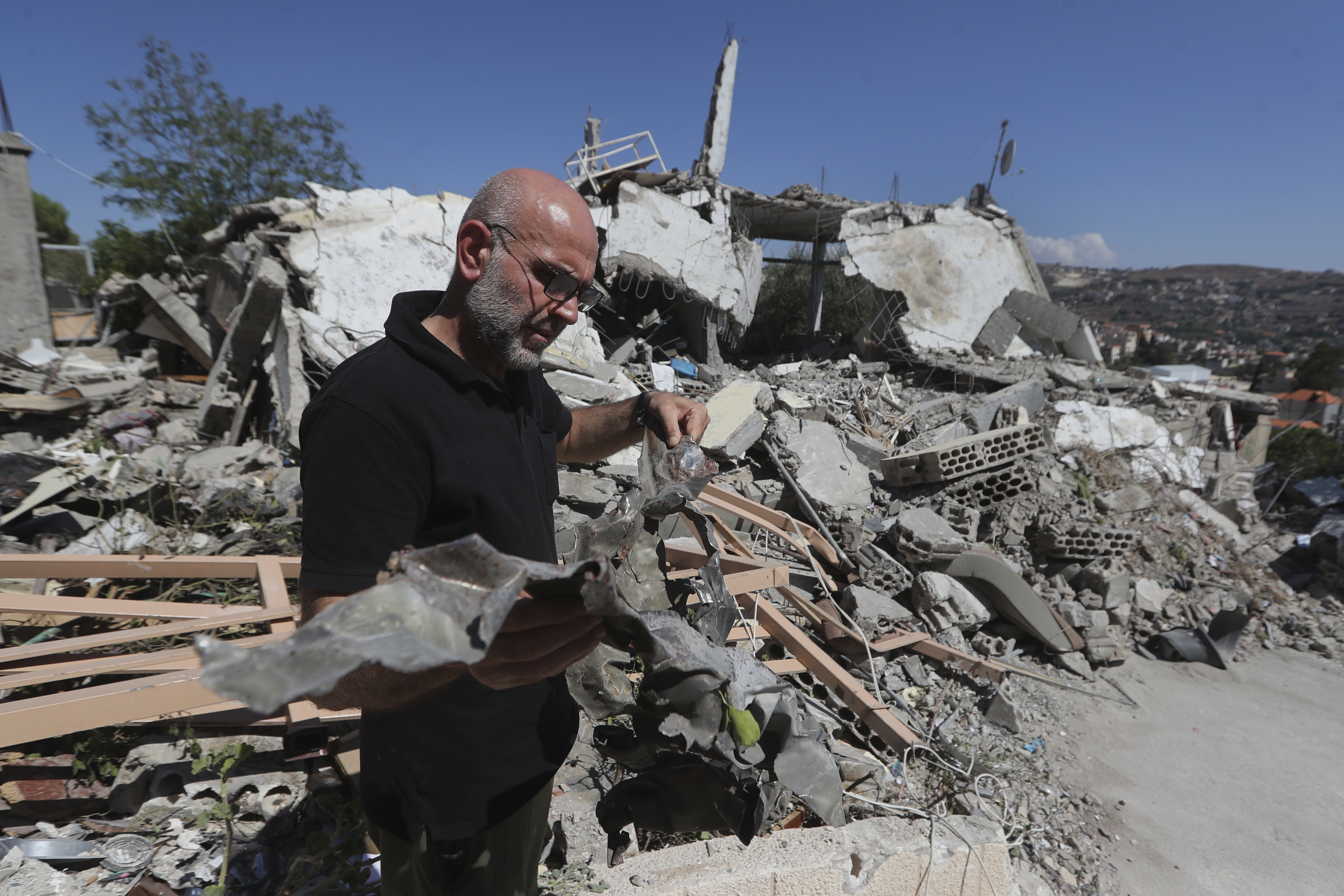
KIBBUTZ EILON, Israel - In deserted villages and communities near the southern Lebanon border, Israeli troops and Hezbollah fighters have watched each other for months, shifting and adapting in a battle for the upper hand while they wait to see if a full scale war will come.
Ever since the start of the Gaza war last October, the two sides have exchanged daily barrages of rockets, artillery, missile fire and air strikes in a standoff that has just stopped short of full-scale war.
Tens of thousands have been evacuated from both sides of the border, and hopes that children may be able to return for the start of the new school year in September appear to have been dashed following an announcement by Israeli Education Minister Yoav Kisch on Tuesday that conditions would not allow it.
"The war is almost the same for the past nine months," Lieutenant Colonel Dotan, an Israeli officer, who could only be identified by his first name. "We have good days of hitting Hezbollah and bad days where they hit us. It's almost the same, all year, all the nine months."
ALSO READ: Israel slammed for bill against UN aid agency UNRWA
As the summer approaches its peak, the smoke trails of drones and rockets in the sky have become a daily sight, with missiles regularly setting off brush fires in the thickly wooded hills along the border.
Israeli strikes have killed nearly 350 Hezbollah fighters in Lebanon and more than 100 civilians, including medics, children and journalists, while 10 Israeli civilians, a foreign agricultural worker and 20 Israeli soldiers have been killed.
Standing in his home kibbutz of Eilon, where only about 150 farmers and security guards remain from a normal population of 1,100, Lt. Colonet Dotan said the two sides have been testing each other for months, in a constantly evolving tactical battle.
"This war taught us patience," said Dotan. "In the Middle East, you need patience."

He said Israeli troops had seen an increasing use of Iranian drones, of a type frequently seen in Ukraine, as well as Russian-made Kornet anti tank missiles which were increasingly targeting houses as Israeli tank forces adapted their own tactics in response.
"Hezbollah is a fast learning organization and they understood that UAVs (unmanned aerial vehicles) are the next big thing and so they went and bought and got trained in UAVs," he said.
ALSO READ: Israeli parliament votes to label UN relief agency a terror organization
Israel had responded by adapting its Iron Dome air defence system and focusing its own operations on weakening Hezbollah's organizational structure by attacking its experienced commanders, such as Ali Jaafar Maatuk, a field commander in the elite Radwan forces unit who was killed last week.
"So that's another weak point we found. We target them and we look for them on a daily basis," he said.
Even so, as the months have passed, the wait has not been easy for Israeli troops brought up in a doctrine of manoeuvre and rapid offensive operations.
"When you're on defence, you can't defeat the enemy. We understand that, we have no expectations," he said, "So we have to wait. It's a patience game."


